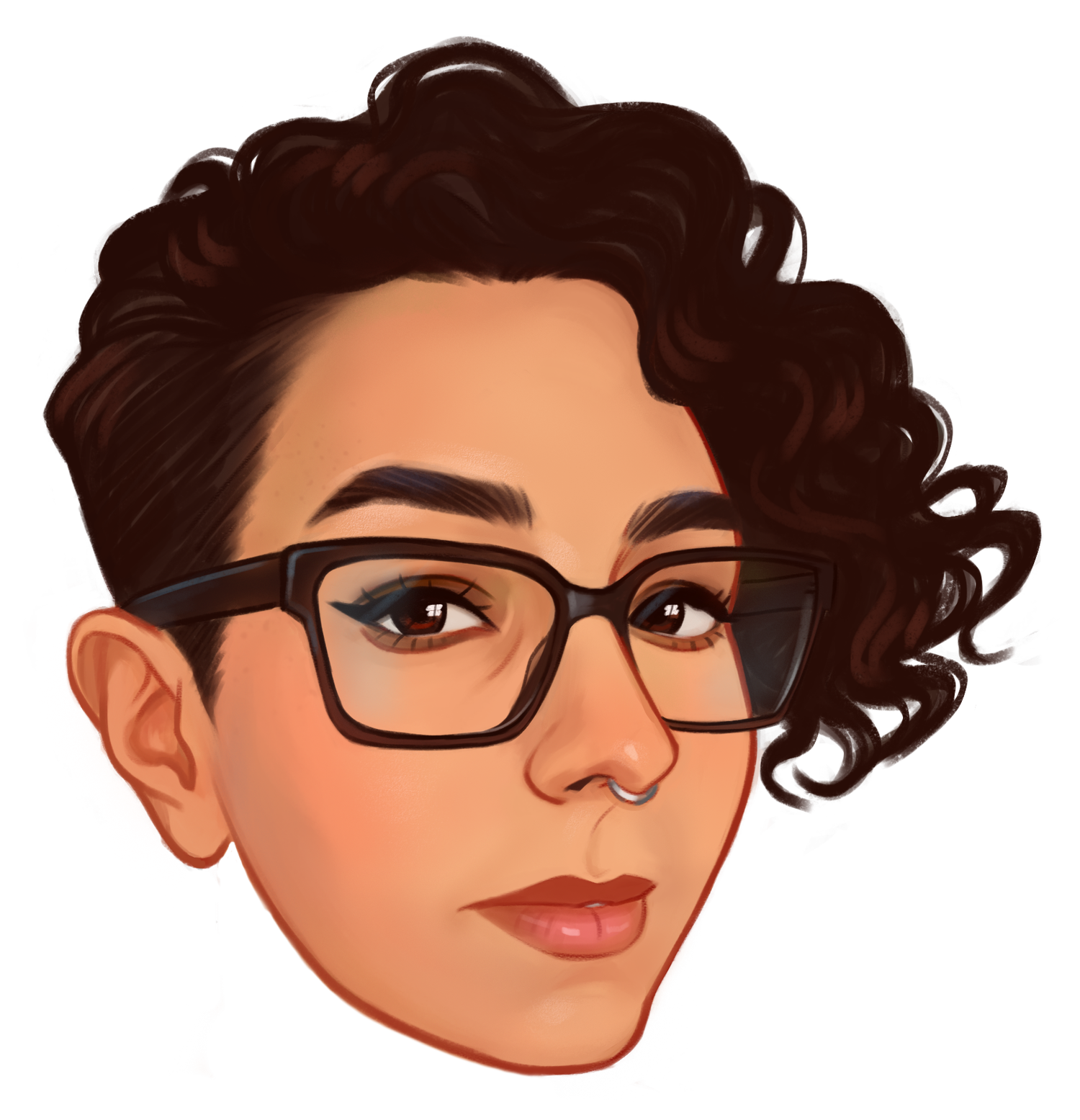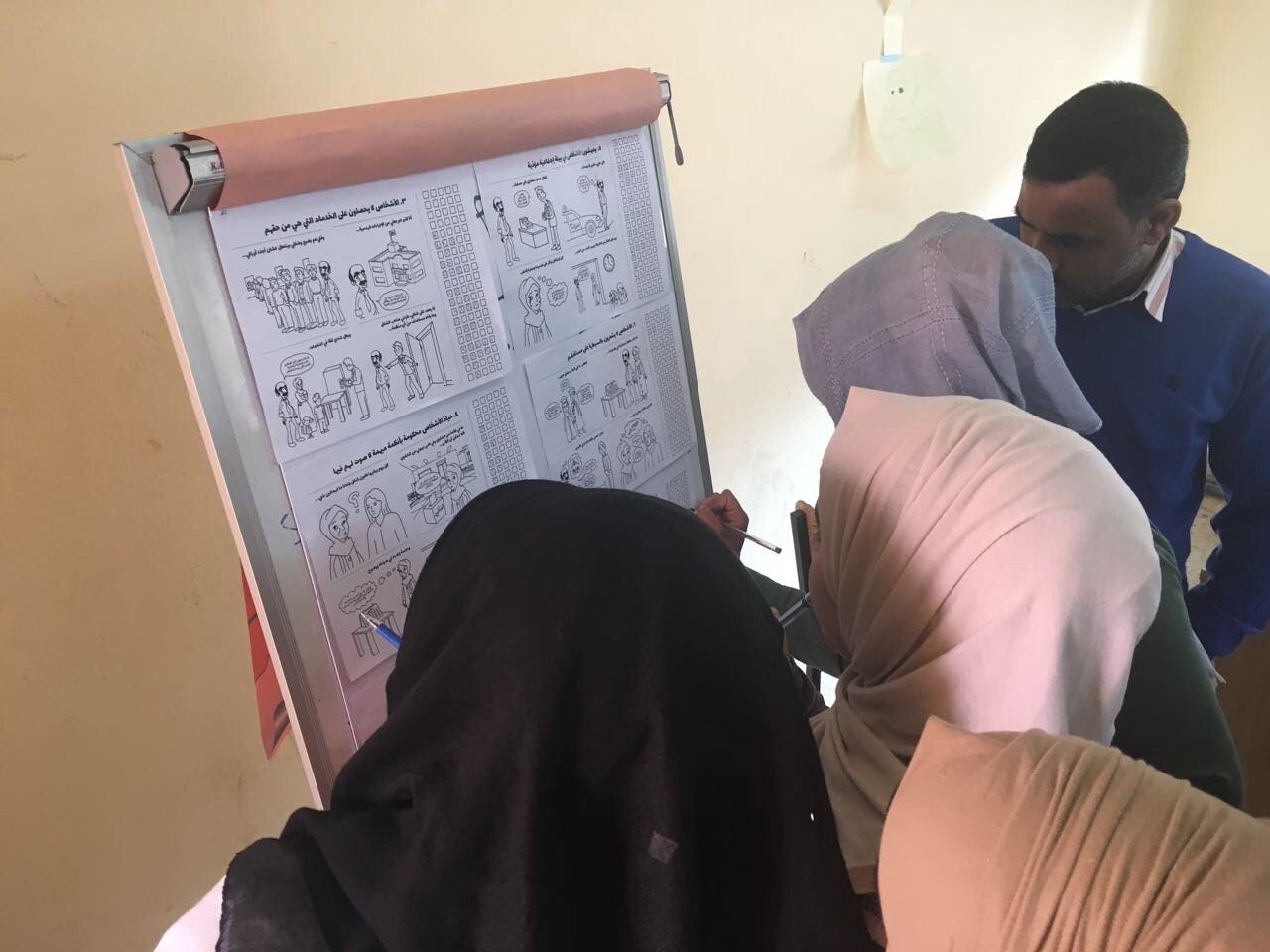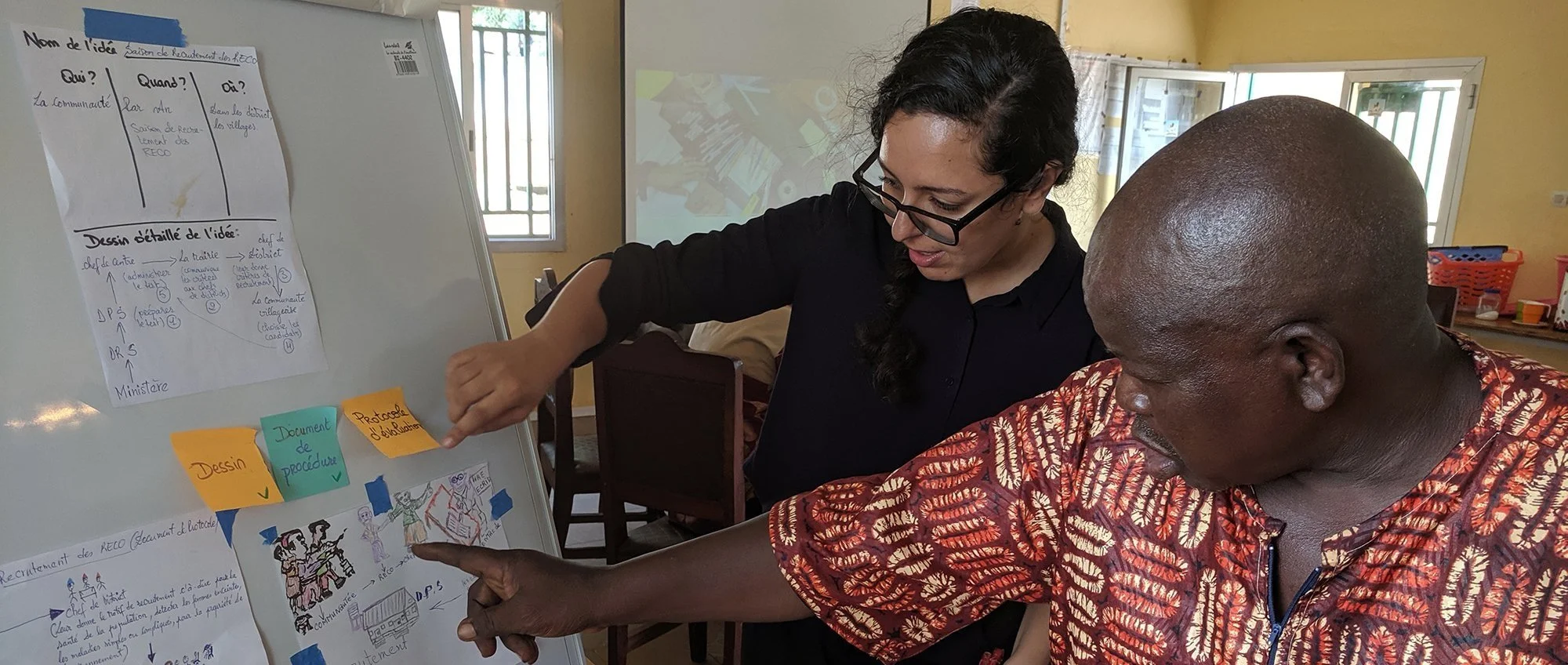Facilitation
My facilitation approach draws from participatory, inclusive, and anti-oppression facilitation resources, as well as Black feminist wisdom that informs facilitation and mediation in movement work, including principles of consensus and collective decision making, alternative governance structures, boundaries, culture creation, and navigating issues of harm, violence, conflict, and accountability in groups.
For some insight into my approach, I have spoken about the challenges of virtual facilitation, and written about making the language of design more accessible in facilitation, facilitating large-scale community consultations, introducing non-designers to design, and using pre- and post-mortems as alignment tools.
Mahali
Fostering community-driven responses to long-term displacement challenges in Jordan
Mahali Lab, started by the International Rescue Committee’s Airbel Impact Lab in Jordan, is a community-driven innovation lab focused on fostering community engagement in identifying and solving challenges posed by long-term displacement. Mahali’s approach is based on the fundamental premise that those who are affected by a problem are best placed to solve it. The Lab is part community consultation (to identify and solve problems), and part incubator (to support entrepreneurial individuals and teams in developing innovative solutions to these problems). As design manager of Mahali, I helped design and implement the lab's tools and processes, identify community problems through facilitating community consultations and engagements, and train high-potential lab participants. To learn more, you can read my first blog post describing the problem-definition stage: “Community-Driven Problem Finding in Jordan,” my follow-up blog post describing the challenge framing phase: “Framing a Design Challenge: What Do We Mean by the Income Problem in Jordan?”, and my last blog post describing the design training and facilitation process: “Cooking up a Design Training Curriculum for Non-Designers,” which was featured by DAI Digital. The Jordan Times covered this work in an article titled “Local innovation lab to develop solutions to refugee crises” and this work was featured as a case study in the book Design for Social Innovation Case Studies from Around the World.
Project website: mahali.rescue.org
Organization: International Rescue Committee
Years: 2017 - 2018
Support for Federation of Labor Unions
Understanding sustainability and revenue generation for the domestic worker labor movement
As part of ongoing support from Open Society Foundations to the International Domestic Workers Federation (IDWF), I served as a seconded member of IDWF’s newly formed sustainability team. In that capacity, I facilitated IDWF’s exploration of sustainability and revenue generation strategies amongst its affiliates and for the domestic workers’ movement more broadly. I co-facilitated convenings IDWF’s executive committee, conducted desk research on revenue generation in labor movements and organizing in general, helped design, administer, and analyze a survey across IDWF’s global affiliates, and provided recommendations to IDWF on avenues to pursue for the sustainability program (including through pilot projects and experiments).
Organizations: Open Society Foundations, International Domestic Workers Federations
Year: 2019 - 2021
Community Health Workshops
Improving collaboration and communication between community health actors in Guinea
ThinkPlace, member of USAID-funded consortium Breakthrough ACTION, was tasked to help improve collaboration and communication between community health actors in Guinea, by using human-centered design as the process to inform the collaboration strategy design and delivery. As a consultant, I helped design and co-facilitate participatory research and design workshops with health care providers, community relays, and representatives of the health system at the prefectural level, and provided recommendations for the engagement moving forward. One of the facilitation decisions that we made during the workshops was to minimize jargon and rely more on visual metaphors to facilitate understanding with an audience with wildly varying levels of literacy and fluency in French.
Organizations: ThinkPlace, USAID
Year: 2019
Housing Justice Campaign Co-Design
Facilitating a convening with housing justice advocates from South Africa and New York City
Open Society Foundations organized a study tour bringing together housing rights advocates (lawyers, researchers, and organizers) from South Africa and New York City to learn about and share strategies and tactics from their work. As part of this study tour, I facilitated a one-day co-design workshop, with the goal of collaboratively designing a housing justice campaign. The workshop was designed to provide a hands-on, practical way for participants to learn from one another and elicit new ways of approaching their work, from defining campaign objectives and understanding the communities they’re trying to serve and the stakeholders they’re attempting to influence, to defining the tactics to be used by the campaign, and planning for its execution.
Organization: Open Society Foundations
Year: 2020
Training for Sex Educators
Training sex educators to address for the sexual health needs of tech-immersed youth in the US
As part of Healthy Teen Network's 2019 yearly conference in New Orleans, a design challenge was organized to tackle the challenges of sexuality and technology that arise with the proliferation of dating apps, sexting, user-generated explicit media, and sex toys powered by artificial intelligence. Attendees of the conference, including sex educators and practitioners, were invited to tackle the following question: How might we equip young people to develop healthy sexualities and have pleasurable sexual lives in the cyborg era? As co-facilitator, I helped conduct a workshop training on human-centered design to help participants understand the sexual health needs of a tech-immersed generation, identify opportunities for design, generate solutions ideas, and bring their ideas to life with rapid prototyping, as well as provided one-on-one coaching to refine concepts and pitches.
Organizations: YTH (an ETR initiative), Healthy Teen Network
Year: 2019
Training for Youth Activists
Training young activists from Hungary, Romania, and Slovakia on project mindsets
Open Society Foundations selected a cohort of Community Youth Fellows to implement a project of their own design, focusing on health rights at the intersection of the LGBTQIA (Lesbian, Gay, Bisexual, Transgender, Queer, Intersex, Asexual) and Roma communities, including the multiple layers and forms of discrimination this group faces in healthcare settings. As part of the initial orientation organized for this cohort, I co-facilitated a hands-on training held in Croatia about important design-inspired mindsets and principles, from navigating ambiguity and using experimentation, to seeking collaboration, to keep in mind as the fellows developed their work and projects.
Organization: Open Society Foundations
Year: 2018







